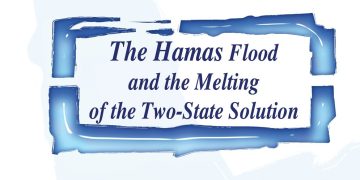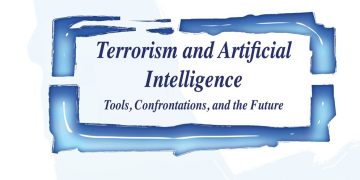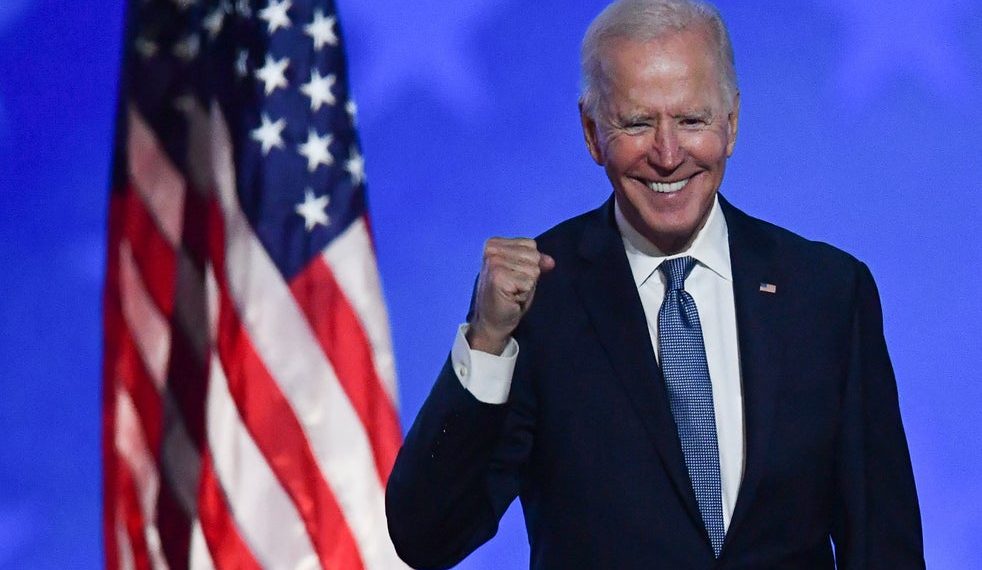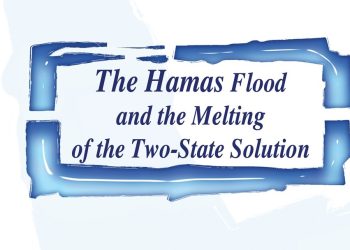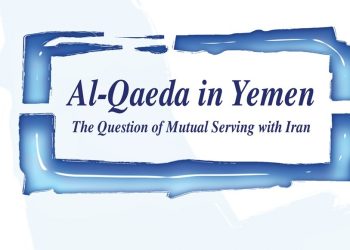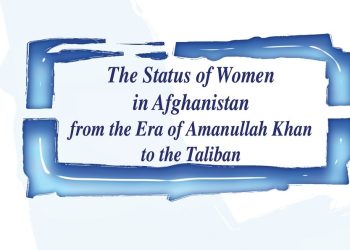At about this time, in the days after a U.S. presidential election signal imminent changes in the persons and the party in power, an outpouring of predictive analysis and advice from the punditocracy greets curious and needy readers far and wide. We’ve seen it before, and we’re already starting to see it again.
One subcategory of post-election analysis, prediction and advice is the regionally focused material: What does a Biden Administration portend for U.S. foreign and national security policy with specific application to Europe, the Indo-Pacific, Latin America, Africa, and of course that perennial favorite, the Middle East and North Africa. Within each regional cluster will reside barrels full of predictions devoted to bilateral relationships and selected grouping of such relationships. In the MENA case that means U.S. relations with Israel, the Palestinians, Jordan, Egypt, Turkey, Iran, Saudi Arabia, and so on in various combinations and permutations. Many of these will be written by Americans, many by people living in the region in English and other languages, and some by those gliding on geophysical tangents in Europe, Japan, China, India and so on in still other languages. Thousands of flowers will bloom, and then, as always, fade from memory as time proves them wrong, or right but trivially so, or, rarely, usefully prophetic.
As always, too, the torrent of ink will be as useful to readers as readers are diversely needy. Material finds audiences because audiences find the material most useful–or believed to be most useful–to them. That’s how it works, but, alas, for four reasons it does not always work well.
First, a lot of this stuff isn’t very good, if meant for serious readers. Much of it is derivative, too narrow, unimaginative, and sloppily written. This time around it will likely be worse than usual because much of it will be very conventional at a time when the world situation is anything but. A lot of people have trouble de-grooving themselves, no matter how obvious the need. Much of it, too, falling like rains from heaven, also tends to collect in puddles, by which I mean that many writers end up reading and writing for each other, so that those who go first or who own the highest reputations tend to be echoed by those who come after. This results in a near-instant literature that repeats the same vocabulary, asks the same predictable questions, and comes up with similar unsurprising, and often uninteresting, answers.
Second, regionally focused material often ends up rich in detail but wrong in analysis because, for all the many trees the writers espy, a forest they cannot seem to make of them. Narrowly interested and trained experts blinded to the larger global contexts in which regional politics play out are notoriously prone to get important things wrong.
Third, instant analysis after an event like a U.S. presidential election tends to pick up and focus on front-burner policy issues–in this case, for example, will Biden try to get back into a nuclear deal with Iran, how will he handle the new normalizations between three Arab countries and Israel, how will he approach the Syrian-Turkish-Russian imbroglio in the wake of the October 26 Russian air attack on the Faylaq-as-Shams camp, what will he do about Libya and its latest weakening ceasefire and the regional politics festooned around it, or the war in Yemen, and so on. People obviously care about these issues and are following them, including from positions of responsibility in government. But such a focus tends to distract attention from other potentially important issues, like the sleeper possibility of an Egyptian attack on an Ethiopian state, wracked as it is by internal violence, over hydrological stakes in the Nile, and so is a predictable source of unnecessary surprise.
Fourth and most important, conventional regional analysis tends only rarely to wander from tried and true (or not true) lanes of causality. All analysis and prediction depend on usually implicit theories of how the world works. But in anomalous times the world may work differently. A good example is how conventional analysis for a long time all but ignored the impact of new information technology on how economic, social, and ultimately political institutions functions. Why? Because the people who were writing the analyses had no background in the history and sociology of science and technology, so absent from brain, absent from text. Now that impact may be overplayed as a kind of intellectual fad while other non-conventional factors, like the downstream effects of a protracted global pandemic, are either somehow ignored or merely misunderstood.
With these caveats in mine, I will now offer an analysis of how Joe Biden’s election as President of the United States is likely to affect U.S. policy in the Middle East, but I will go about it in what I suspect will be an unfamiliar way. And let me warn you as well that my conclusions will be short on specific predictions, because getting such things right with any confidence at this moment is impossible–despite having learned over the past few days who the key foreign and national security policy personnel will be. It is better to be humbly restrained than confidently wrong, or so it seems to me.
The Mingling of Foreign and Domestic Policy
Most who learn about foreign policy in school are taught a modified neo-realist approach to international relations in which domestic political culture plays but a minor role in how decision-makers operate on internationally relevant issues. Academic neo-realism has very little in common in this regard with classical temperamental realism as applied to geopolitics and diplomacy. Read any informed memoir from any experienced statesman and the near constant intermingling of domestic political and foreign concerns just about leaps off the pages, and would penetrate any attentive mind that had not previously been washed raw by academic cant.
What that means in the current case is that observers can sit in armchairs or at their computer desks and muse about what, all else equal and normal, a Biden Administration would logically do given its inheritance from the Obama years, with now-known personnel in key positions with certain views and experiences, and be totally wrong about what will happen. The reason is that all else is never equal, and the main reason in turn for that is that the bandwidth for foreign policy is not a constant.
Biden will be deluged with a range of domestic priorities and crises from the moment he takes the oath of office on January 20, and the deluge will likely not much abate for some years. There is the still-worsening COVID pandemic, an economy already troubled and then re-crushed by the pandemic’s second wave, healthcare problems more generally that have also been magnified by the pandemic, festering immigration issues, infrastructure, energy, and plenty more.
Some things Biden can change by Executive Order, like re-validating the DACA “Dreamers” portfolio. But much of what he will seek to change will require Congress and, very likely, the Democrats will not control the Senate; most efforts mounted by the new administration will therefore be long, hard, pulls. The new Secretaries of Defence and State, the new National Security Advisor, the new Secretary of the Treasury and the new Trade Representative, and others too, can sit around, alone or in conclave, and make long lists of fixing old problems and readying major new initiatives….and just stew in slo-mo frustration as the President and his closest aides attend to one burning domestic dumpster fire after another.
What this means, in part, is that the new administration will be able to restore normal decision and foreign liaison processes that the Trump Administration destroyed or ignored, and that is all too the good. That does not require a lot of quality presidential time. It will be able to properly fund the State Department, for example, and depoliticize offices there and elsewhere in the Executive Branch that should never have been politicized in the first place. It will be able to handle ordinary foreign relations, which is not the same as making foreign policy. It can also determine the tone of U.S. statecraft, and all of that is important and bound to be an improvement over the past four years.
But it will be unlikely to launch major new initiatives that bear significant presidential investment. More likely, just one or two high-priority investments per region will be separated from the large potential cache of issues, and cabinet and sub-cabinet level energy devoted to those. Re-stabilizing the U.S.-Iranian relationship will likely be one of those items in the MENA region. Israeli-Palestinian relations will not make the cut, if only because of a predictable sober judgment that neither the politics nor the existential state of that relationship is now amenable to positive change. Biden is well known to feel great warmth for Israel, though not necessarily for either the Likud or the current long-serving Prime Minister. But for the reasons put forward above, none of that is likely to matter much for at least two to three years, contrary to what other pundits may claim, for they rarely show evidence of grasping the limited bandwidth factor.
Beyond that, the White House’s basic attitude will be to tell the new administration’s foreign policy and national security team that the President is busy putting out fires at home, so please don’t let foreign policy issues hurt him politically. But challenges and crises invariably arise anyway, some because adversaries will set out deliberately to test Biden at the peripheries of U.S. interests, and some of them inevitably will make it to the Oval Office. That portends a steady but low-energy foreign policy punctuated by episodic headline-generating reactions to sudden crisis or serious challenge.
That will be true for core strategic regions like East Asia and Europe. It will be true for the MENA region, of second-tier importance these days, if the Iranian regime badly miscalculates and provokes a crisis, or if there is domestic upheaval in Saudi Arabia, or severe turbulence in or around Turkey as its president over-reaches Turkish power, and so forth–what we might call generically strategic “Minsky Moments.” (For those who may be unaware, a Minsky Moment, named after the late Hyman Minsky, is a sudden perturbation in financial markets caused by excessive speculative risk-taking.)
So don’t expect a lot of deliberate policy innovation or sharp conceptual turns anytime soon; a Biden team’s instinct will try to revert to the basic situation that existed before mid-January 2017, and a lot of returning veterans of the Obama era will know in detail what those situations looked like. In some cases that will be more or less possible, but the world has moved on since Barack Obama left office–and not everything was just fine when he did. Attempts to restore normalcy in some situations just won’t work, and someone, eventually, will be forced to figure out why and deal with it.
When they do, assuming they do, a pattern will be started, and subsequent decisions on that issue, whatever and wherever it is, will be affected by path-dependency dynamics. That’s just how it works: The first decision a new administration makes in a given policy area is typically of unusual importance. Understanding it well can be a useful predictor of subsequent behavior. But no one can say beforehand what the challenges will be, which will generate crises and which will not, and how they will be initially managed. That is why detailed predictions of how various policy zones will roll out over a period of years are likely to be inaccurate, a little or a lot. The strategic logic of given situations does narrow the range of policy reactions, but not as much as is often supposed.
Finally on the mingling of domestic and foreign policy is a very important point in the U.S. case that most non-Americans, and many Americans too, typically overlook. The United States is an unusually abstract nation. What I mean is that America’s variety of nationalism is in the main a civic, not a bloodline, nationalism. Its sense of the public realm is therefore more of an outgrowth of ideas than pure experiences, and its sense of unity is sited less in the past and more in a consensus on what the nation will build and achieve in the future.
America is abstract also in the sense that its high idealism, its exceptionalism, comes out of Protestant religious culture. These creedal, once-removed religious ideas are very abstract as foreign policy templates and key influences usually go compared to other states, great powers and lesser powers alike. When America was young and weak its policies were pragmatic, and even transactional, for lack of alternatives. But as American power grew, the nation’s innate missionary attitude toward the world–as the last, best hope for mankind, as Lincoln put it–gained room for play.
But again, domestic and foreign intermingle even when it comes to abstractions: When Americans are troubled over their own national virtue, when they cannot agree on what the next America to build should look like, it affects the foundational morale of an active and constructive U.S. foreign policy. That is the case now.
Many people say that America cannot afford an expansive, ambitious policy, that its galloping neo-isolationism is all about money. But this is not the gist of the reluctance to remain engaged. Some say we have been too active in too many places marginal to U.S. core interests, and have failed to take the full measure of the fact that the Cold War is long over, international terrorism never rose to the level of existential threat, and so we no longer need the kind of vigilance we once did. There is some truth in that, but it does not really explain the sirens of isolationism we hear. It is mainly that Americans do not feel as though we deserve to play a leading, shaping role in the world, given our moral failures and frailties at home. This is not mainly a pragmatic sentiment, that we need to take care of ourselves and so have little time or money for others. It is a moral sentiment at base and it is categorical in nature. It is about worthiness, not opportunity-cost choices.
Does MENA Matter to the United States?
So much, in brief, for the internal aspects of a transition to a new administration that make predicting its foreign policy behavior difficult. Now let us move to the opposite pole, and look at the situation from the outside-in, so to speak.
Ultimately, how the Biden Administration approaches the Middle East will be a function of how important the President and his closest advisers think the region is to U.S. interests and ideals. That assessment is and has been for a while in some flux. The time is ripe for reassessment, and indeed in some respects it is long overdue. Reassessment has mainly to do with people: new people replacing or joining old people in positions of decision-making authority. That is why new administrations, which excel at such personnel remixing, are often harbingers of policy change. It is also why democratic elections and transmissions of political authority are usually good things, because they enable flexibility and adaptation to new conditions in ways that long-tenure authoritarian systems do not. Think Brezhnevian stagnation, or the hoary “bad emperor”/“bad sultan” problem.
Ultimately, then, how important the MENA region is to U.S. interests will rest on the subjective judgment of the President and his advisers. Personality and experience matter, but it would be churlish to think that objective reality will have no impact on their conclusions. Biden and company do not live in a lurid fantasy world of ignorance and personality disorders. That being the case, let’s briefly review what history tells us about the U.S. understanding of the MENA region. We need to do so we can project forward on the basis of some historical logic.
DROP CAP/SECTION BREAK
The Middle East and North Africa region did not play a major role in American strategic thinking until the late 1960s and early 1970s at the most recent. Before that it was a place that missionaries and traders cared about, and the government cared about it only if those missionaries and traders could persuade it to care. So the Jefferson Administration mounted a military operation against the Barbary pirates–“to the shores of Tripoli”, as the Marine anthem goes. And that was that. Even with the advent of the Cold War and the Truman Doctrine, the Middle East only mattered because its energy supplies and location were indirectly relevant to the core theaters: Europe and Northeast Asia. Much of the region was a British responsibility, which was fine with Washington. Israel after May 1948 was a special-interest concern, and not just or even mainly to American Jews, but it had no strategic relevance. Proof: The U.S. government developed no military supply or cooperation ties to Israel until after the June 1967 War, which Israel fought and won with a French-supplied air force.
Things changed with waxing Soviet influence in Egypt, as made manifest by the 1969-70 War of Attrition, and then accelerated fast with the British decision in 1971 to leave “East of Suez.” The Carter Doctrine, the Iran-Iraq War and then the Egyptian-Israeli peace treaty, the Soviet invasion of Afghanistan on Christmas Day 1979 along with the Iranian revolution of 1978-79 and the hostage crisis, ushered in a new policy reality. This was a collection of truly catalytic events, and it portended a far more active and kinetic U.S. role in the region. The 1991 Gulf War and then the March 2003 Iraq War–with 9/11 and the invasion of Afghanistan sandwiched between–mark the highlights of this increased pulse. Plenty more happened, too, of course.
One result of all this was a massively enlarged U.S. military footprint in the region. That presence expanded from an over-the-horizon position in the British Indian Ocean Territory, known for short as Diego Garcia, to the stationing of the Fifth Fleet in Bahrain, the building of a huge air operations command and control center in Qatar, not to mention the large and small dispatch of U.S. military power to Iraq and Syria–and those are just the headline aspects of the much expanded footprint of the past roughly quarter century, which includes smaller facilities in the UAE and Djibouti, for example.
All this time too, from 1979 through to today, significant advances in military and intelligence technologies have enabled the U.S. government to project hard power into the MENA region from the continental United States (CONUS) as well as with its assets stationed in and near the region. The question, however, is: For what? Why do we need these capabilities? What interests do they serve?
One might think that asking and seeking answers to questions like these would be a major and constant activity of senior U.S. decision-makers. One would be wrong; it usually isn’t. We don’t do planning well in the U.S. government. Policy Planning in the State Department, where I once worked for a few years, does a lot of things, some of them arguably useful, but serious planning is rarely one of them these days. The Office of Net Assessment in the Pentagon, established and long directed by the late Andrew W. Marshall, was one of the few places in the government that broad strategic thinking informed by history and joined to planning took place. As for the rest of the national security system, not really, certainly not in the White House, despite the ample resources and staff of the National Security Council system. This lack of formal planning surprises a lot of non-Americans. Fine, then, be surprised.
But this is precisely why a transition to a new administration is such a special time in the pattern of U.S. thinking and planning. It marries the arrival of fresh blood with the opportunity to do some serious zero-based thinking about legacy commitments and behaviors that have long since become near-robotic in character. The bureaucracy, civilian as well as military, just keeps on keeping on without much thought given to why. Why, for example, does the U.S. military need Al-Udeid airbase in Qatar anymore when it has successfully demonstrated that, thanks to the aforementioned new technology innovations, air operations in the region can be efficiently managed from Central Command in Tampa, Florida? And when the operational tempo of those operations is anyway much reduced thanks to the waning of shooting wars in Iraq and Afghanistan? And since the base being there reduces U.S. diplomatic flexibility in the region by magnifying the leverage possessed by the Al-Thani?
This is not the place for a thorough parsing of U.S. interests in the MENA region. But a clipped summary in the form of a few crisp question-and-answer couplets, in proper order of geostrategic priority, we can manage.
How strategically important are U.S. allies in the region with regard to the wider geostrategic landscape? Not very. Unlike France and Japan and even Australia, whose hard and soft power extend far beyond their geographic locations, not a single U.S. ally or partner in the MENA region matters much outside the region. The two minor exceptions are Saudi Arabia’s clout in energy and financial markets and the Islamic Conference, and Israel’s globe-relevant scientific-technical capacities. But these are not hard-power assets, which in a pinch are more important than soft power or economic ones.
How strategically important is the region as a whole to U.S. interests? The energy resources of the region still matter a lot to the global economy despite U.S. energy self-sufficiency. This is because the price of oil is set within a unitary international market and is denominated in U.S. dollars, but that in turn only matters a lot if the grand strategy of the United States takes some responsibility for the security and the prosperity of the global commons. That has been postwar U.S. grand strategy in a nutshell. It is the strategy Joe Biden understands from all his years on the Senate Foreign Relations Committee and his eight years as Vice-President–even though devotion to that strategy ebbed during the Obama Administration and has been turned on its head during the four years of the Trump Administration, whose primitive zero-sum-brained leader could not understand the mutual benefit of alliances anymore than he could understand why soldiers would fight and die for their country. “What was in it for them?”, he honestly asked, having no clue about the answer, since his own ambit of empathy does not extend beyond his shoe tips.
President-elect Biden endorses the strategy if mainly because it’s the only one he really knows from experience, but he may do so without fully appreciating that circumstances have changed to make its operation and implementation more difficult. But it is better that he have the goals straight than not, so long as he can discern what is and is not possible, or wise, by way of deriving policies and tactics from the basic strategic framework. He who would defend everything, and do everything, ends up most often being able to defend nothing and achieves too little. So said the wise men of old, and nothing has since diminished their wisdom.
So what really is crucial to U.S. interests and what is marginal? Crucial to U.S. interests, and certainly to U.S. enlightened self-interest in the context of the grand strategy mentioned above, are four objectives: staunching weapons-of-mass-destruction proliferation, the main case being that of an Iranian trigger to a mousetrap, runaway WMD competition; ensuring the security of the Persian/Arab Gulf, and recognizing the need for U.S. power to guarantee that security; the maintenance of peace between Israel and Egypt, for that prevents the return of major war in the Levant on the scale of 1967 or 1973, and if possible its patient expansion to other parties beyond Jordan and the three recent, more distant parties (UAE, Bahrain, and Sudan); and the prevention of massive crimes against humanity, to include regime-abetted mass murder even beneath the threshold of outright genocide.
The reason why this last category is of critical importance to U.S. interests is not just airy morality, that such events depress humanity’s self-image and morale, although that in truth is not such a trivial consideration. The main reason is that such massive depredations destroy normal social functioning and lay the foundation for future failed states, terrorism, refugee crises, and pandemic disease that are bound to spill beyond given countries and the region. It is not therefore the region’s potential to do good things that matters most, but its potential to cause harm to others. That is sad, but if we cannot tell ourselves the truth we will not get very far.
Secondary but not trivial interests include counterterrorism cooperation with partners and others, and cooperation with regard to public health and environmental issues. But to be frank, again, the human capital and scientific-technical innovation assets of the region, Israel mainly excepted, are not great. Cooperation is still useful, but the MENA region is more likely to be a recipient of benefits from other parts of the world than a major contributor to the common global welfare in the paramount functional challenges of our time.
Finally, what about U.S. economic interests? As a civilizational zone, Middle Eastern countries trade with each other less than countries in comparable zones, such as, say, Latin America. Their share of world commerce, energy resources excepted, is also small. Energy-export based economies in the region are vigorous importers of all kinds of goods, including luxury goods, and so matter for many companies and countries. But they do not matter all that much for American companies compared to other importing regions. Economic nationalism as a factor in U.S. policy tends to ebb and flow with conditions and personalities in decision-making positions. But even allowing for such fluctuations the MENA region is not nearly as important these days to American business as East and Southeast Asia, Europe, and even the Americas (Mexico, Canada and Latin America). The region’s many and protracted instabilities make it less attractive still as a place for U.S. private investment.
All taken together, this means–and the Biden Administration is likely to alight on the same conclusion–that the dichotomous nonsense we often hear about the region, as in stand pat or just leave entirely, is exactly the nonsense it seems. U.S. interests in the region are not like a light switch, either all the way on or all the way off. It is not silly to think that legacy positions in the region constitute an overinvestment and need to be put on a diet, but it is silly to think that U.S. interests would be served by a wholesale withdrawal of presence and policy energies.
Some people nevertheless do favor wholesale U.S. withdrawal, but for two different kinds of reasons.
One school of thought critical of U.S. policy argues that it is the U.S. presence in the MENA region that causes most of the trouble, and that if the United States would just leave, after an awkward period of adjustment perhaps, a benign balance would descend and everything will be more or less just fine. This view makes sense if one ignores the corrupt rentier behavior of most autocratic regional elites, historical enmities, jealousies and fears, the existence of avaricious and meddlesome neighbors like Russia and Turkey (both part of and not part of the MENA complex), and the fact that the regional distribution of power is not conducive to stability. There are too many relatively large-population countries set cheek-by-jowl next to too many rich but small-population countries. This view of natural benign balance is akin to the idea that if you take the contents of a ten-gallon aquarium, put them in a food processor and hit the frappe button for a few minutes, the result will be a nice bouillabaisse. Sorry; it doesn’t work that way.
The other school we might call Machiavellian, although only in the vulgar sense–since the real Machiavelli was only Machiavellian in the interpretation of the Catholic Church that has come down to us in vernacular language from centuries ago. In this school’s view, it serves U.S. interests to let the peoples of the region have at each other, within and between countries. If they are killing each other for sectarian or nationalist or whatever reasons, they will become weaker and also less interested in bothering us. The apogee of this kind of thinking holds that the best thing that could possibly happen for U.S. interests in the world in the years to come would be a massively destructive nuclear war between China and India, the world’s two most populous nations. If Russia got bombed to radioactive smithereens, too, as part of the mayhem, these critics would shed no tears.
Needless to say, I hope, this view is as foolish as it is immoral. Never mind the massive radioactive fallout; the shatterbelt of instability and madness such a war would trick off in a huge chunk of the planet would shroud the world in misery for decades. No nation would escape the effects.
No, a full U.S. exit from the MENA region would serve no positive purpose for anyone. For example, the idea that U.S. power need not protect the Gulf since U.S. supplies make us self-sufficient–so let China do it and pay for it, Trump said after the Iranian attack on Abqaiq–was one of the most irresponsible and inane things he said in the past four years, and the competition is very stiff. Why? Because China could use predominant influence, if not full control, of the seas lanes of communication between the Gulf and the Pacific Ocean not just to ensure its own energy supplies, but also to deny them in a crisis to U.S. allies in Japan, South Korea, Taiwan, Singapore and elsewhere. If the U.S. military cannot protect its key allies’ capacity to function economically along the Chinese maritime zone, then the game is over: The U.S. hub-and-spoke alliance network would collapse, the allies would make whatever deals they must with Beijing, and China would pick up all the best pieces from the overthrown game board.
But the status quo in the Middle East does beg adjustment, no doubt about it. It will fall to the Biden Administration to first figure out and then get practical about how to double down on the interests that are truly critical and leave off the ones that aren’t. Note that this is not the same as getting free from and never engaging in “endless wars”. This is a lazy phrase that fails to understand that enforced stalemates can be vastly better than precipitous defeats. It is a phrase characteristic of people who do not understand geopolitics and who are evidently short on patience. This is the challenge, to distinguish between the necessary and the marginal, and if this challenge is properly understood by the new team then even a rash of judgmental tactical errors in moving toward the finish line will be forgivable.
This is not heroic stuff, admittedly. This is not democratizing the entire region, as in the Bush 43 Administration’s “forward strategy for freedom”, which did more harm than good. It is not the “transformational” civil society ambition of Barack Obama’s 2009 Cairo speech. It requires a humbler, more patient, less ambitious and frankly more transactional approach. Happily, that fits Joe Biden’s temperament and experience. He has never been a visionary kind of strategic thinker; but he has demonstrated an instinct for what is politically viable and what works well enough. At least as far as U.S. policy toward the MENA region is concerned, that is a serendipitous good fit.
If the essential challenge is not properly understood, despite all, then remember what the Cheshire Cat said to Alice: “If you don’t know where you’re going, any road will take you there.” From well beyond the grave Mr Dodgson reminds us that we Americans really cannot afford to spend any more time down multiple Middle Eastern rabbit holes. We need to define where we’re going, and having willed the ends we must be prepared to will the means. Enough is enough, in both senses.



